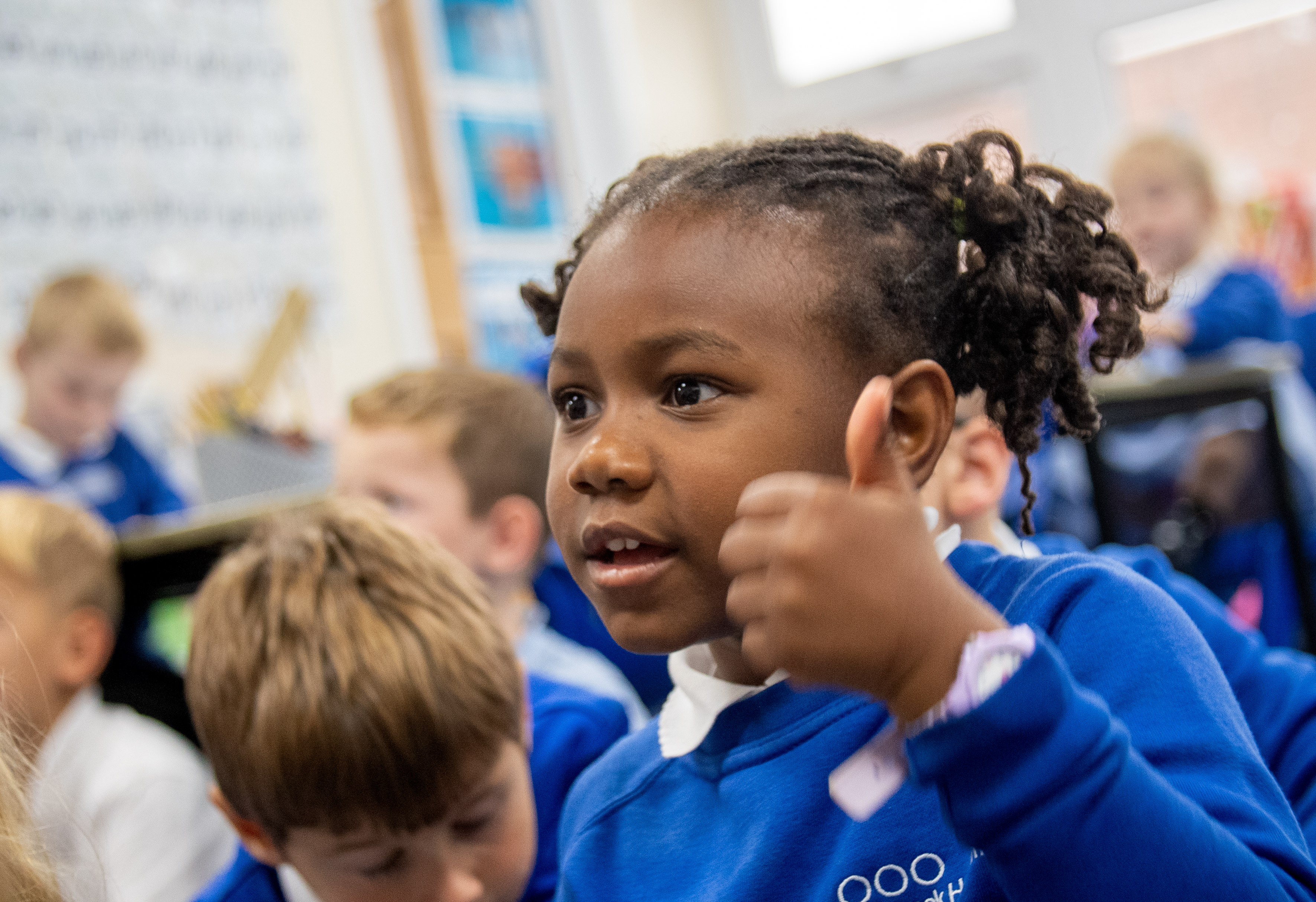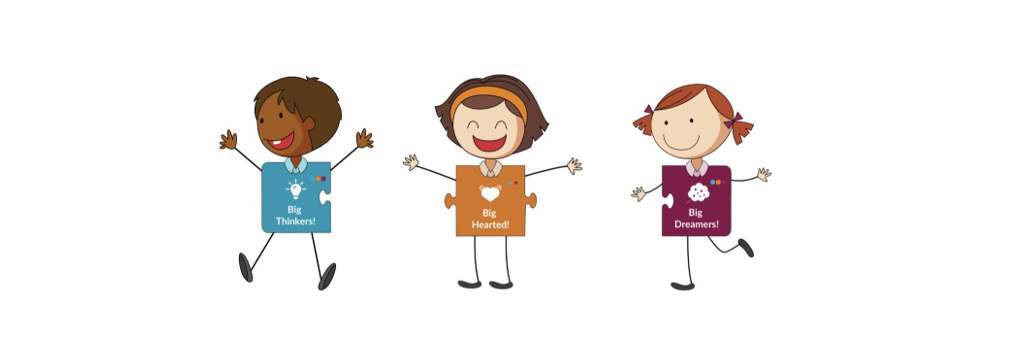
Pupils safeguarding and the promotion of fundamental British Values are at the heart of all our work at CHPA and immense importance is placed on identifying opportunities within the curriculum for pupils to learn about safeguarding.
Our broad and diverse curriculum gives pupils the chance to experience life in all its diversity, to acquire knowledge, understanding and skills that significantly affect personal development, behaviour and welfare and equip every pupil with the knowledge and skills required for personal safeguarding.
At CHPA, we have developed a broad and balanced curriculum that is underpinned by the principles of safeguarding and one which provides explicit opportunities for the teaching and learning of safeguarding as outlined in ‘Keeping Children Safe in Education’ (KCSIE). The CHPA curriculum is fluid and changes with new changes within KCSIE developments each year, with any safeguarding topics we believe would support our pupils within their life at CHPA and the wider community. The curriculum is continually adapted to include or explore local, national and global issues wherever and whenever possible.
Relationships, Sex and Health Education (RSHE) is a vital part of our curriculum and is integrated into everyday practice as well as lessons within our PSHE curriculum covering the statutory guidance on the key topics; families and people who care for me, caring friendships, respectful relationships, online relationships and being safe. These themes are explored through our PSHE curriculum, using the PSHE Association Question-Based model approach, through themed days or assemblies, informal classroom discussions and Picture News. Within the Early Years Foundation Stage (EYFS), these themes are explored through Personal, Social and Emotional Development (PSED) and Personal Development and Wellbeing (PDW), which are highlighted within our PSHE Question Based model, incorporating Self-regulation, Managing self, building relationships and understanding the world. This focuses on supporting every pupils holistic growth and development in areas like social emotional and physical wellbeing.
Our PSHE curriculum enables pupils to become healthy, independent and responsible members of society. We encourage our pupils to play a positive role in contributing to the life of CHPA and the wider community through; Pupil Council, Eco-Warriors, Play-leaders, Digital leaders, supporting local, national and international charities, working alongside community groups (such as The Friends of Charnock Recreation Grounds), local library visits and visiting local religious centres and in doing so, we help develop their sense of self-worth and their role in the global community.
Digital literacy (E-Safety) is explicitly taught as part of our PSHE and Computing curriculum from YR to Y6 and more widely across our CHPA community during Online Safety Day and sharing the National Online Safety Safeguarding Information via our Social Media channels and weekly Newsletter. The curriculum is flexible, relevant, engages the interests of our pupils, and is focused around the overarching PSHE theme being taught at the time. Additional opportunities are sought to embed online safety skills across the curriculum, pupils are taught about the benefits, and risks of using technology, providing safeguards and awareness that will enable them to control their online experience and keep themselves as safe as possible.
We constantly challenge pupils to think deeply about safeguarding matters and their own personal, physical and mental well-being. We value pupils’ questions and give them space for their own thoughts, ideas and concerns and provide them with planned opportunities across the curriculum to explore values, personal rights, responsibilities and equal opportunities, develop moral concepts that affect positively on safeguarding, promote British Values and prevent radicalisation and extremism.
At CHPA, we develop pupil knowledge and understanding of the major world faiths by exploring fundamental questions in life and seeking opportunities to celebrate similarities and differences in people’s faiths and beliefs. We enable pupils to develop a sound knowledge not only of Christianity but also other world religions through our RE lessons, celebrating key religious celebrations throughout the year such as Holi and Diwali and the main faiths of pupils and families with CHPA and the wider community. We are bold in exploring contemporary issues that affect our everyday society and through doing so; promote British Values throughout our curriculum.
Safeguarding and the curriculum at CHPA
| EYFS |
| Manage their own basic hygiene, personal needs and understanding food choices
Form positive relationships to adults Know differences and similarities between different religious communities. Stranger Danger |
| Year 1 |
| Stranger Danger
People who help us (emergency services, doctors, nurses) Correct names of body parts. PANTs rules The features of family life and what makes a safe home. Importance to talk if someone or something make them unhappy or worried. Taking care of their bodies – medicines, what being healthy means, germs, dental hygiene Road/Rail/water safety. Responsibilities in and out of the classroom. Fire safety |
| Year 2 |
| How to make friends with others.
How to resolve arguments How to ask for and give/not give permission regarding physical contact and how to respond if physical contact makes them feel uncomfortable or unsafe. How to report bullying, including online. Jobs in the community. How people use the internet for jobs. Road, fire, cycle, water safety. How to identify risks and unsafe situations and how to take steps to avoid or remove themselves. How not everything online is true or trustworthy. To tell a trusted adult if they are worried. How to help their bodies stay healthy including food, drink, sleep, physical activity and rest. |
| Year 3 |
| How to build good friendships.
How to resolve disputes How to recognise hazards that may cause harm or injury. How to keep our bodies protected e.g. seatbelt, protective clothing etc. How everyday health and hygiene rules and routines help people to stay safe. Medicines What to do in an emergency. Common features of a positive family life. How families should care for each other. Different families such as single parents, same sex parents, blended families etc. How to be respectful towards people who may live differently to them. How to eat healthy How to maintain good dental hygiene. Balanced diets. |
| Year 4 |
| Developing self-worth and mental health.
How people’s behaviour affects others in person and online. The right to privacy and how to recognise when a secret should be kept or not. Everyone should feel included, respected and not discriminated against. How to respond to aggressive or inappropriate behaviour. Puberty and Menstruation. How to recognise, predict, and manage risks. How to keep safe in the local environment. How to keep safe online. Rules, restrictions and laws exist to help keep people safe. How to report concerns including online. |
| Year 5 |
| Risks associated with money.
How to spend/save money. Basic first aid course. How to seek help during a medical emergency. How friends and family communicate, including social media. How to recognise risks in a friendship. Things that are safe to share online. How to ask for help or advice about personal safety. To understand what are drugs, alcohol, smoking/vaping, caffeine and medicines and how these can affect health and wellbeing. Illegal and legal drugs. Knife crime – how to keep safe and understand the laws. Bikeability |
| Year 6 |
| How mental and physical health are linked.
Continue to develop and support a healthy, balanced lifestyle including, healthy meals, staying physically active, oral hygiene, staying safe in the sun etc. How illegal and legal drugs can affect health and how to manage situations involving them. How to recognise early signs of physical or mental ill health and where to seek help. Raise awareness of county lines – to build resilience against becoming involved in county lines operations. To raise awareness of knife crime, how to keep say and understand the laws on carrying a knife. How the medial influences our thoughts. To recognise unsafe or suspicious content online. To recognise extremism and to prevent radicalisation. To understand gambling and how it can affect everyday life. That people have different kinds of relationships in their lives, including romantic and intimate relationships. To explicitly explain what domestic abuse is and that it can be physical, mental or financial abuse. To identify traits of an unhealthy and healthy relationships To recognise coercive and controlling behaviour and to build resilience against this. To recognise marriages and civil partnerships. How puberty develops further. Crucial Crew Road Safety workshop. |
How CHPA addresses specific areas of safeguarding within the curriculum and when.
| Child Sexual Exploitation/Grooming | Year 4 Autumn 2
Year 4 Summer 2 Year 5 Spring 2 |
| Bullying and Online bullying. | Year 2 Autumn 2
Year 3 Autumn 1 Year 4 Autumn 2 Anti-bullying week. |
| Domestic Violence | Year 3 Spring 1
Year 4 Autumn 2 Year 5 Spring 2 Year 6 Summer 1 and 2 |
| Drugs, alcohol, smoking and vaping. | Year 5 Summer 1
Year 6 Summer 1 and 2 |
| FGM | Year 6 Summer 1 and 2 |
| Mental Health | Year 2 Summer 2
Year 4 Spring 1 Children mental health day. |
| Preventing Radicalisation and Extremism | Year 6 Spring 1 and 2 |
| Child on child abuse | Year 2 Autumn 2
Year 3 Autumn 1 Year 4 Autumn 2 Year 5 Spring 2 Year 6 Summer 1 and 2 Anti-bullying week. |
| Knife Crime | Year 5 Summer 1
Year 6 Summer 1 and 2 |
| County lines | Year 5 Summer 1
Year 6 Summer 1 and 2 |
| Protected Characteristics. | Year 1 Autumn 1
Year 2 Autumn 1 Year 3 Spring 1 and 2 Year 4 Autumn 2 Year 5 Autumn 1 Year 6 Summer 1 and 2 Picture News |
| Online safety | Year 2 Spring 2
Year 3 Autumn 2 Year 4 Summer 2 Year 5 Spring 2 Year 6 Spring 1 and 2 and Summer 1 and 2 Online safety day |
